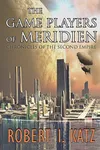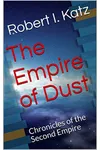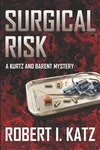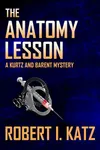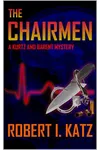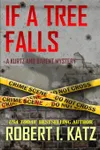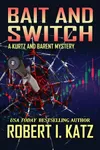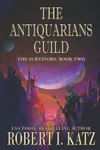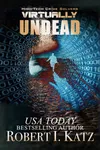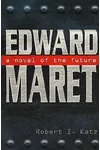Picture an American storyteller who swaps surgical scrubs for suspenseful plots—meet Robert I. Katz! A Professor of Clinical Anesthesiology at SUNY Stony Brook, Katz weaves his medical expertise into gripping thrillers, mysteries, and science fiction tales. From his award-winning debut Edward Maret to the pulse-pounding Kurtz and Barent Mystery series, Katz’s stories hook readers with intricate plots and vivid characters.
With a knack for blending real-world grit with imaginative twists, Katz has carved a unique niche in genre fiction. His journey from operating rooms to bestseller lists is as fascinating as the worlds he creates. Let’s dive into the life and legacy of this multifaceted author!
The Making of Robert I. Katz
Born with a voracious appetite for reading, Robert I. Katz devoured five books a week as a child, dreaming he could outdo the stories he loved. After studying at Columbia College and earning a medical degree from Northwestern University, he completed his anesthesiology residency at Columbia Presbyterian. Katz spent most of his career at SUNY Stony Brook, rising to Professor and Vice-Chairman for Administration. Around 1985, armed with his first personal computer, he began writing, though he quickly learned crafting fiction was tougher than surgery. It took years of persistence to hone his craft, but his determination paid off.
Robert I. Katz’s Unforgettable Stories
Katz’s debut novel, Edward Maret: A Novel of the Future (2001), a science fiction thriller, won the ASA Literary Prize and earned rave reviews for its blend of cyborgs, political intrigue, and galactic adventure. Encouraged by his agent to tap into the wider mystery audience, Katz launched the Kurtz and Barent Mystery series with Surgical Risk (2002). This gripping tale follows surgeon Richard Kurtz and detective Lew Barent as they unravel a hospital murder, blending medical authenticity with suspense. Readers praised its twists and Katz’s insider perspective, often comparing it to Patricia Cornwell’s work.
The series continued with The Anatomy Lesson (2004), where Kurtz and Barent tackle a gruesome academic murder, and Seizure (2009), a tale of greed and revenge sparked by a philanthropist’s eerie vision. Katz’s style shines through vivid characters—like the ego-driven yet relatable Kurtz—and tightly woven plots that keep readers guessing. His later works, like The Cannibal’s Feast (2017), return to science fiction, exploring corporate warfare in space, showcasing his versatility across genres.
Katz’s writing is marked by meticulous detail, drawn from his medical background, and a knack for pacing that mirrors a thriller’s heartbeat. His themes often explore betrayal, revenge, and the human cost of ambition, resonating with fans of both crime and speculative fiction.
Why Robert I. Katz Matters
Robert I. Katz’s impact lies in his ability to bridge the clinical and the creative, offering readers authentic, immersive stories. His Kurtz and Barent series has earned a loyal following, with reviewers lauding its suspense and character depth. By infusing medical thrillers with real-world stakes, Katz has carved a space alongside giants like Robin Cook. His science fiction, meanwhile, tackles timeless questions of identity and power, earning accolades like the ASA Literary Prize.
For aspiring writers, Katz’s journey from busy physician to prolific author is a testament to perseverance. His lesser-known status only adds to his allure—discovering his books feels like unearthing a hidden gem in the thriller and sci-fi realms.
- Key Works: Edward Maret, Surgical Risk, The Anatomy Lesson, Seizure
- Awards: ASA Literary Prize (2001) for Edward Maret
- Genres: Thriller, Mystery, Science Fiction
Snag Surgical Risk and dive into Robert I. Katz’s thrilling world of medical mysteries and high-stakes drama!
